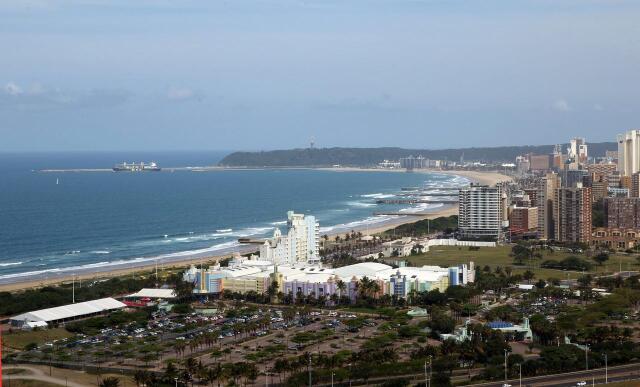The tourism sector will face devastating festive season losses if government institutes a tougher lockdown, says Fedhasa.
THE TOURISM sector could lose R64 billion should the country be placed under stricter lockdown levels over the festive season, according to the Federated Hospitality Association of Southern Africa (Fedhasa).
Fedhasa national chairperson Rosemary Anderson spoke to Indpendent Media on Sunday, hot on the heels of a new coronavirus variant, Omicron, being discovered by South African scientists and concerns being sparked after foreign governments imposed travel restrictions.
“Tourism and hospitality in South Africa contributes R272 billion annually to the economy, and 30% of this is over the December to February high season. Therefore the value attached to the time period we are about to go into, is R81.6bn,” Anderson said.
She added that due to the crisis that had transpired over the past few days, hospitality and tourism operators had projected a 79% decline in income. “Therefore the loss to our sector and the economy, just in the next three months, is more than R64bn.”
She said that isolating countries and going into repetitive restrictions and lockdowns was simply not sustainable.
“The only sustainable solution is mass vaccination and simultaneously for the government to gear up our health-care system so we are adequately able to cope with levels of hospitalisation, while citizens continue to live responsibly using all non-pharmaceutical interventions at our disposal and allow the economy to be fully open,” Anderson said.
On President Cyril Ramaphosa’s address to the nation, she said: “We have faith that our government will institute sensible regulations based on science that balance lives and livelihoods.”
On Sunday, Tourism Minister Lindiwe Sisulu convened an urgent meeting with private-sector tourism stakeholders to proactively address how the private and public sector could collaborate to mitigate the effects on the tourism sector regarding the travel bans.
“Our war room will be meeting on a regular basis to roll out and follow up on practical actions adopted by industry stakeholders to deal proactively with the obstacles and crises that our tourism and hospitality sector face; with the immediate priority to ensure that we preserve domestic tourism over this festive season to secure the livelihoods our sector supports,” Sisulu said.
She said the immediate priority was to protect the country’s domestic tourism over the festive season so that “we can save livelihoods and keep the doors of tourism and the hospitality businesses open”.
Private-sector tourism stakeholders provided a number of solutions, including, among others, reducing the size of indoor gatherings, expanding the curfew and prioritising the vaccination of South Africans to mitigate the impact on the country’s health-care system.
The Restaurant Association of SA (Rasa) said it was time for the government to change its response to Covid-19 and focus firmly on limiting further economic catastrophe.
Rasa CEO Wendy Alberts said: “Our sector is a major employer of the most vulnerable category of workers, who have lived through the extreme stress of having their employment switched on and off at the whim of the government without any warning.”
She said the remaining businesses were fighting for survival. “A new round of restrictions would be a killer blow that inflicts untold misery on business owners and workers alike.”
Business Unity SA CEO Cas Coovadia said: “This will have a severe impact on tourism at a time when the industry has just started a slow recovery. The best response to the new variant is to get as many people as possible vaccinated as quickly as possible. Vaccination is the single most critical weapon against Covid-19 and we should ensure people need to be vaccinated to enter places where they interact with others. This is based on science.”
Tourism MEC Ravi Pillay was concerned about the impact of Omicron.
“I think we are more concerned about the reaction of the UK and the European countries in restricting travel. And we had been very encouraged by what we thought was going to be a good recovery; our hotels were starting to fill up and it was a real boost to our tourism sector. So, we are concerned about the impact on our tourists on an international level.”
Department of International Relations and Co-operation Minister Naledi Pandor said that while South Africa respected the right of all countries to take the necessary precautionary measures to protect their citizens, everyone needed to remember that this pandemic required collaboration and the sharing of expertise.
“Our immediate concern is the damage that these restrictions are causing to families, the travel and tourism industries, and business.”








